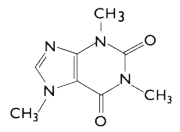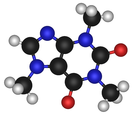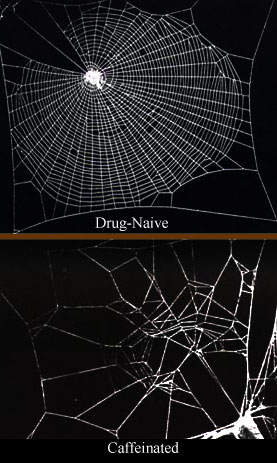Q: Caffeine gives me energy in the gym, but it also reduces my appetite. Should I still use it during mass-building stages?
A: In a word, absolutely. Here's what our experts had to say:
Steve O'Reilly, RD, LD, Is CEO of Underdog Nutrition (for more info, visit underdognutrition.com).
"Caffeine helps to increase strength because it triggers the release of epinephrine from the adrenal glands, resulting in improved muscle contractions," says O'Reilly. "When this happens, perceived exertion is reduced, allowing athletes to push more weight without making a conscious decision to work harder." While these benefits are not long-lasting, regular use of caffeine before exercise will lead to the long-term benefit of improved strength, which of course is clearly associated with increased muscle mass.
Furthermore, O'Reilly says that caffeine consumption shouldn't affect your muscles' growth rate due to appetite suppression. "Caffeine, especially when taken with ephedrine, suppresses appetite. However, by itself, caffeine's ability to do so seems to be much weaker." O'Reilly notes that if you're taking a thermogenic product, chances are that it contains several other ingredients, some of which are likely more responsible for your decreased appetite than the caffeine itself.
"I recommend preworkout caffeine during all phases of a bodybuilding program," O'Reilly says. "It's one of the most thoroughly researched and proven ergogenic supplements available. If you take caffeine 45 minutes before exercise and then work out for 60-90 minutes, your appetite should be somewhat recovered within an hour, post-exercise. If you simply cannot stomach whole food after your workout, just switch your post-workout meal to a protein/carb shake, which will be much easier to get down and may be absorbed more rapidly anyway."
As for how much caffeine to take before that workout, try 2 mg per pound of bodyweight (so a 200-pound bodybuilder should take 400 mg).
IFBB pro George Farah placed sixth at the 2004 Night of Champions. In addition to his own bodybuilding career, he has worked with other top lifters, including David Palumbo and Erick Fromm.
George is also a strong proponent of caffeine, despite the fact that it has come under scrutiny for its side effects. "Caffeine is actually a very good preworkout supplement, but years ago the media reported that it caused high blood pressure and other problems. This got blown out of proportion. We all know that moderation is the best idea for bodybuilders. Some people take 200-300 mg of caffeine every couple of hours. When you're consuming a gram or two a day, you're likely to feel side effects like shakiness, nausea or heart palpitations. Overdoing it is certainly not good."
To avoid side effects, George recommends a moderate dosage, particularly on hard training days. "Before a strenuous leg day, caffeine can not only give you a good mental boost but can also help reduce muscle pain during your workout, and it can act as a thermogenic to help burn fat," he says. "Still, while caffeine can be a good training tool, nothing is more important than adequate sleep and proper nutrition."
REFERENCES
Caffeine lowers perceptual response and increases power output during high-intensity cycling. Journal of Sports Science, 22(7):637-643, 2004.
Effects of caffeine on energy metabolism, heart rate, and methylxanthine metabolism in lean and obese women. American Journal of Physiology, (269):671-678, 1995.
COPYRIGHT 2005 Weider Publications
COPYRIGHT 2005 Gale Group



